Process
| Sep 13, 2024
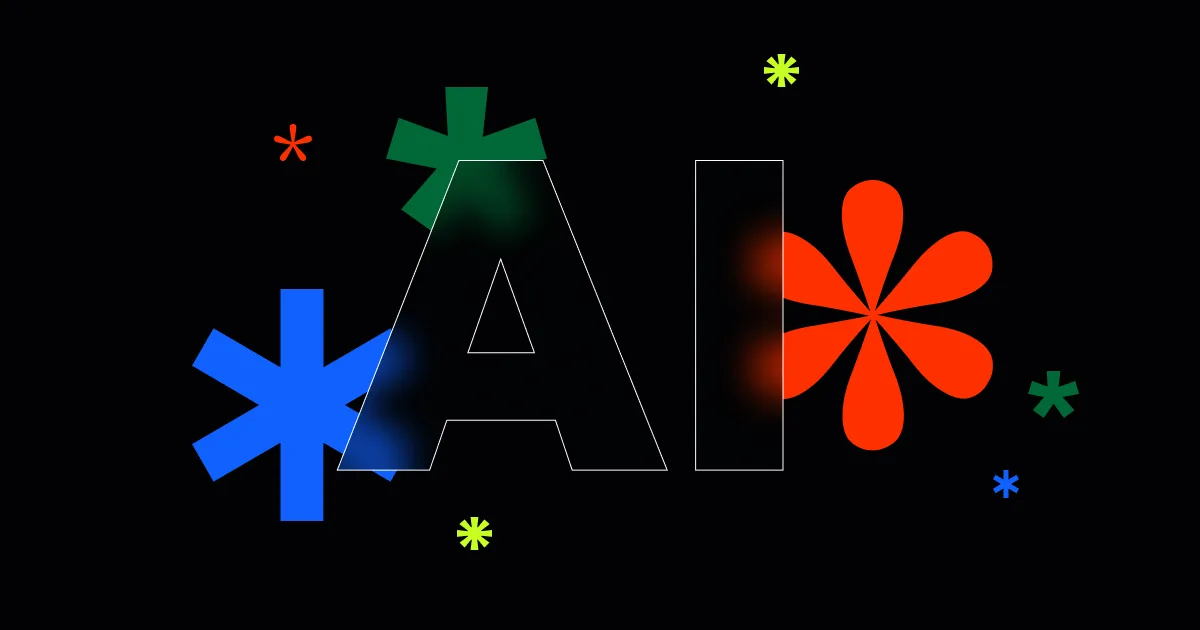
It’s hard to find an industry that AI hasn’t had at least some effect on in the past year. The way we see it, AI is a pretty nifty powerup that complements the expertise of our already insanely talented team. While AI can lend a hand to everyday workflows and kickstart certain aspects of research and projects, it's still our skilled developers, designers and project managers who we want in the driver’s seat.
Over the last year, we’ve thoughtfully integrated AI tools into various aspects of our day to day operations to enhance our capabilities without losing the human touch that defines our work. From content creation to code development, design innovation to project management, AI is helping us push our boundaries and focus on the parts of the business that are best left to good old fashioned human brain power.
Here are just a few ways our development shop has been using AI in 2024:
GitHub Copilot has been one of the biggest ways we’ve reached across the AI aisle so far. CoPilot is an AI coding assistant that can help increase the efficiency of our developers. As anyone in our industry knows, freeing up time for developers is worth its weight in gold.
Among many helpful features of the tool are its live code suggestions. Think of it like the way your phone or browser might autocorrect or autocomplete what you're typing. While it can't read a developer's mind and isn't always perfect (much like your phone's autocorrect which keeps suggesting "ducking" instead of what you meant to type), it can recognize patterns and offer automated solutions for otherwise repetitive or time-consuming coding tasks.
When Copilot gets it right, it allows our developers to say, "Actually, yes, that's exactly what I meant to code!" This not only speeds up the coding process but also enables our developers to explore new methods and solutions that might not be immediately obvious.
When it comes to AI, we feel strongly that our work still requires a human last-touch. AI’s not perfect, and maybe never will be if a human is to judge. If CoPilot can correctly suggest even a few functions of lines of code with a professional developer to confirm first, it’s a big step in the right direction.
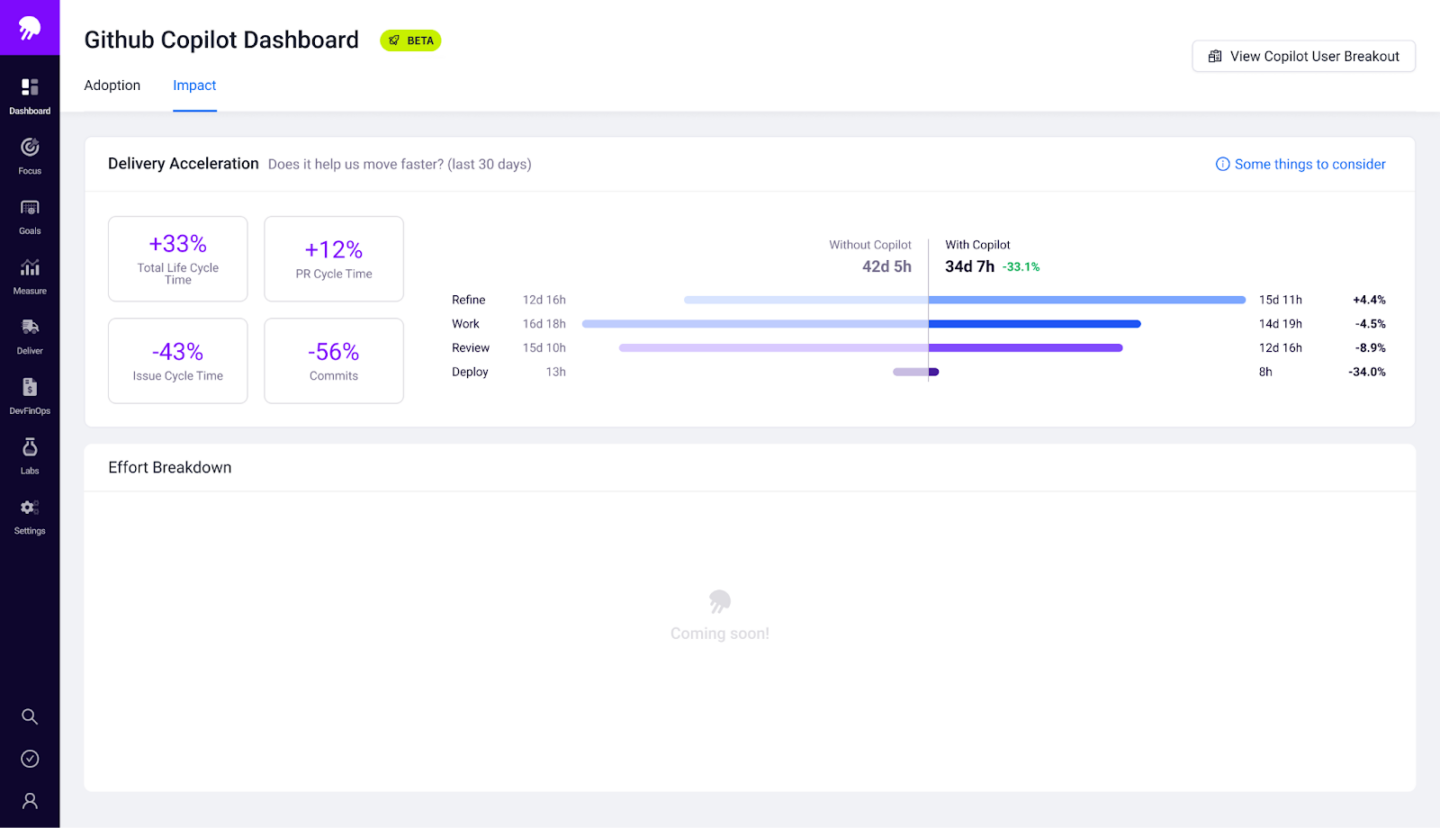
Our designers use a few ease-of-life AI features as well. AI tools which can quickly remove or separate backgrounds from an image can speed up compositions for layouts. Additionally, Figma AI features can glean the subject matter from a complicated page design, and help organize the workspace by automatically applying layer names from the layers panel, freeing up a time-consuming task that lets us spend more time designing, and less time with project file cleanup.
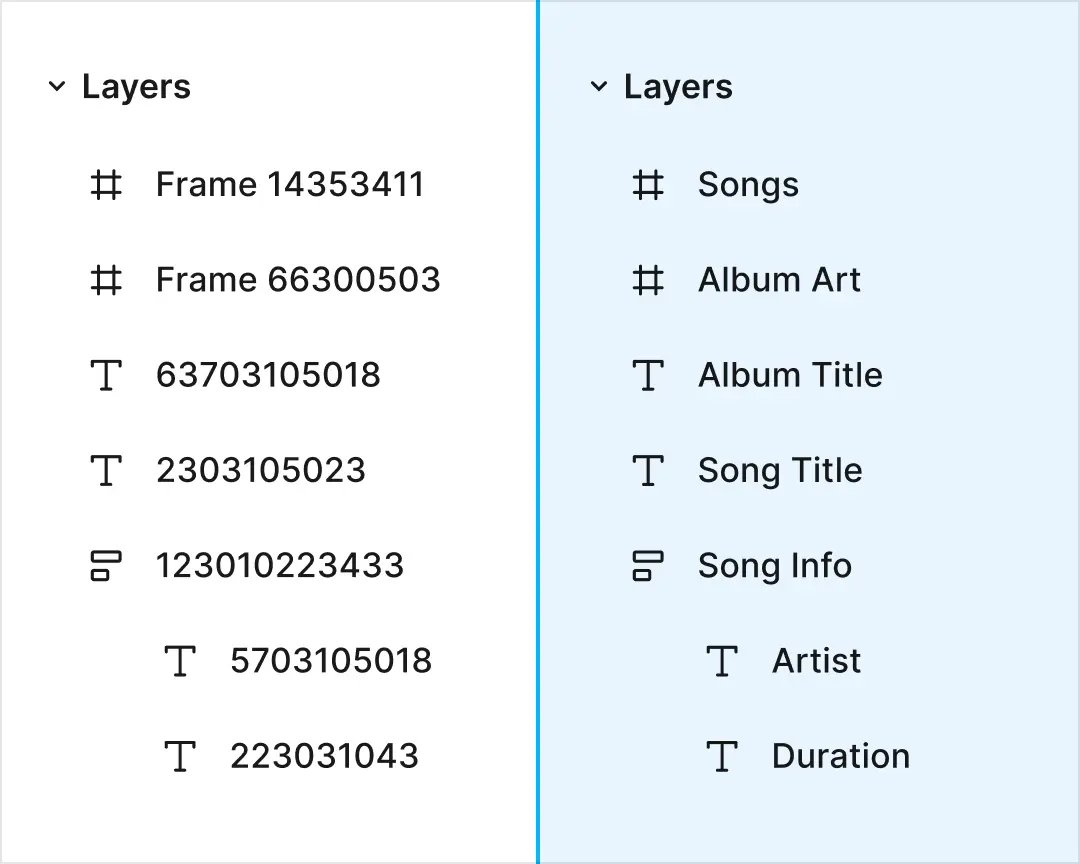
While our designers primarily work in Figma, Photoshop’s AI Generative Fill feature can also be helpful to expand or resize images, and fill in margins and gaps creatively. We haven’t had a lot of reasons to utilize Adobe Illustrator's developing AI tools yet, but it’s good to know it’s a tool at our disposal. Other generative tools like ChatGPT and DALL-E can be helpful at the start of projects to quickly research various content styles and assist in concept and styling ideation.
AI has become a welcome sidekick in some of our product management workflows. Implementing AI into management workflows works best when you can clearly define your goals: whether it's achieving higher-quality work, adopting more creative approaches, or completing tasks faster. It starts with identifying workflows that demand a lot of time, brainpower, or creativity—tasks like research, ideation, creation, or synthesizing all of those things at once.
Our project managers use AI to capture notes and next steps on meetings, to summarize industry reports and compliance documents, and to assist with competitive research. The parts of project management tasks that used to feel a bit like ditch digging are becoming more passive components, freeing up our brain power for the parts humans do best.

AI tools like ChatGPT and Gemini have been game-changers for generating content ideas, drafting rough copy, and brainstorming creative concepts. Have you ever been paralyzed from staring at a blank screen, word document or slides deck, knowing the due date that it needs to be filled with all your brilliant thoughts, designs or ideas? By kickstarting the creative process, AI can help give us something raw to react to in a flash, and improve iteratively along the way.
Another life-changing use of AI comes in the form of easily creating spreadsheet formulas that would otherwise require a master class in excel. Need a formula to isolate or augment certain strings from a URL in another cell? Feed ChatGPT a link to your Google Sheets file, and voilà. When managing lots of data where manual cleanup/organization could get out of hand quickly, it’s usually worth asking ChatGPT if it can cook up a formula first, before firing up that 30 minute tutorial on YouTube.
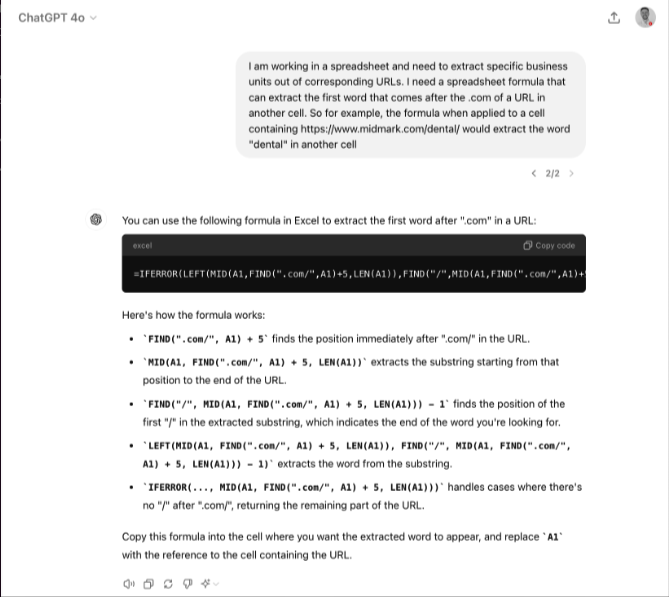
AI usually plays a role for our entire team in various day-to-day tasks in some big or small way. Most notably, we use an AI note taking tool called Fireflies. This tool captures conversations from virtual meetings and automatically compiles action items and next steps. It’s not perfect, but it’s honestly pretty darn close.
Knowing that there’s an AI stenographer capturing discussions and taking notes in real time allows us all to be vastly more present in our client conversations, and better problem solvers on the fly.
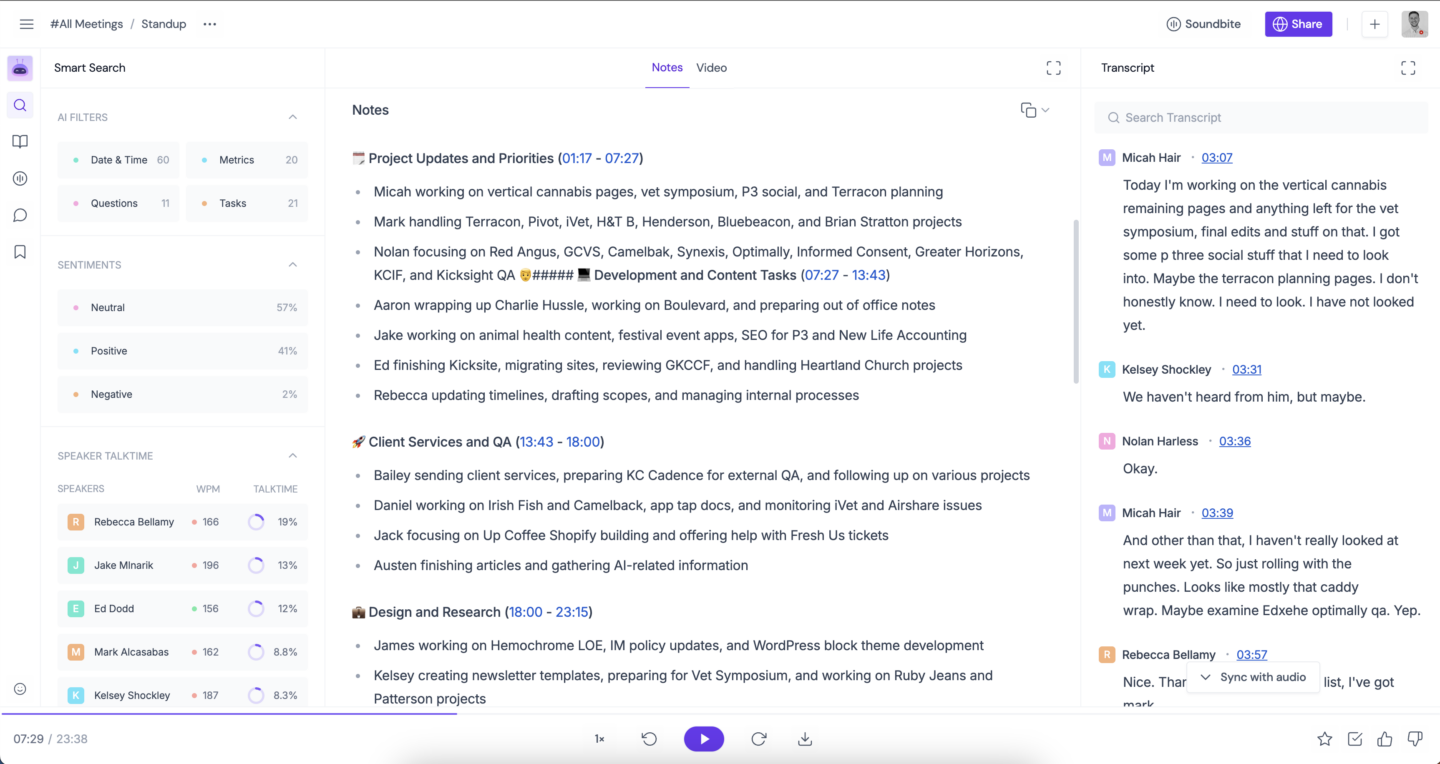
To ensure that our team is always at the cutting edge, all P3 employees are given access to the latest OpenAI GPT models on their first day. This commitment to integrating advanced AI tools from day one allows us to better assist our clients and maintain a competitive edge in the industry. We also have an AI Steering Committee and a dedicated AI Slack channel where our team can share news, ask questions, and exchange tips and tricks for using AI to improve our work.
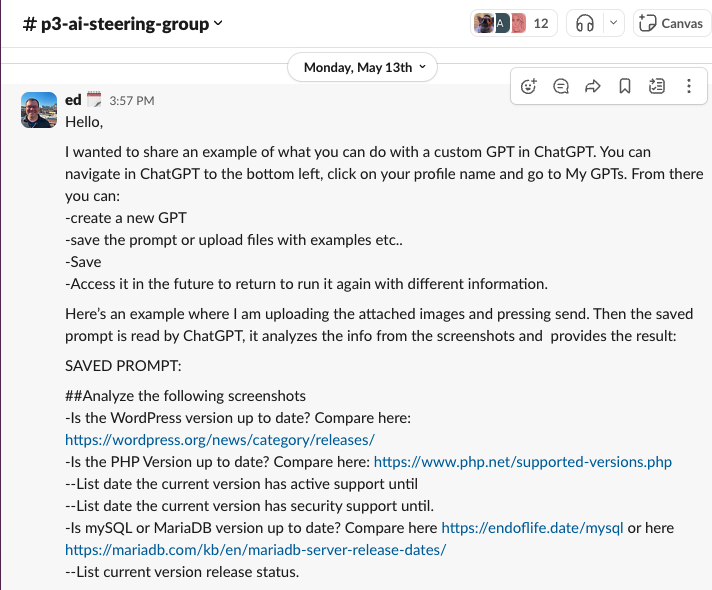
Integrating AI wasn’t without its challenges. Like most, we planned our way through some healthy skepticism about the ethics and practicality, and reliability of embracing AI. Early on, there was a lot of conversation about which platforms to adopt as our company-wide providers, with an influx of different tools offering slightly different versions of the same functionalities—like coding companions, AI note-taking apps, and generative tools.
We empowered our team to test these tools themselves, find what worked best, and help steer the company in directions that would allow us to do our best work. Through rigorous testing and continuous feedback, we refined our use of AI tools to ensure they met our high standards. This open-minded and curious approach allowed our tight-knit development team to embrace AI early on without mandating any specific tool and fostering an environment of innovation and collaboration.
While AI offers tremendous benefits, we are mindful of the ethical considerations surrounding its use. Issues like copyright and climate impact are significant concerns when it comes to AI-generated visual content. We conducted a lot of research and trial early on, and even formed an AI Steering Committee to promote open dialogue about the best ways to use AI responsibly and ethically in our work. This approach reflects our values and resonates with clients who prioritize responsible and ethical technology use. As The Dark Knight says,

The AI landscape is rapidly evolving, with new tools and technologies emerging regularly. AI tools like GitHub Copilot and ChatGPT will only continue to evolve, offering increasingly efficient solutions for development, design, project management and more..
By embracing AI as a powerful tool that complements our human creativity and expertise, we enhance our craft and maintain our competitive edge. While AI has changed how we work, it hasn’t changed who we are.
Our team of professional web developers and designers brings decades of real-world, real human experience with real sites, real apps, real clients and real companies. We’re not just relying on machine-learning algorithms; we’re skilled humans using AI to power up our abilities and deliver exceptional results to our clients.